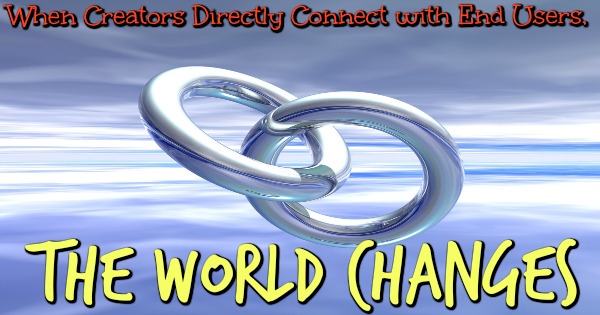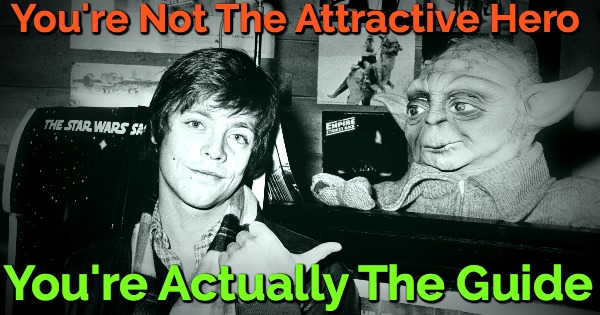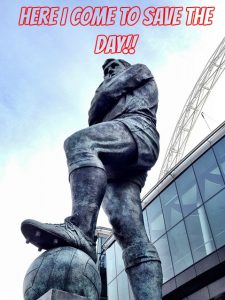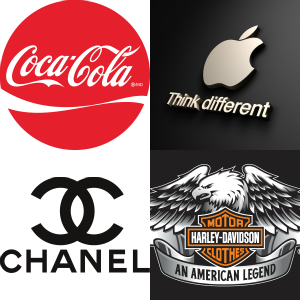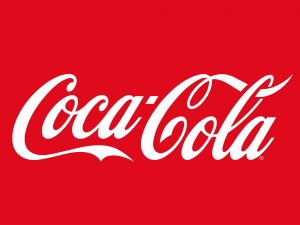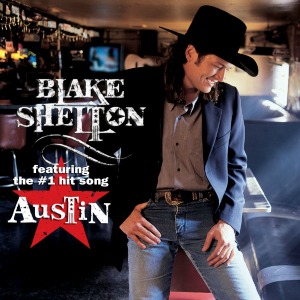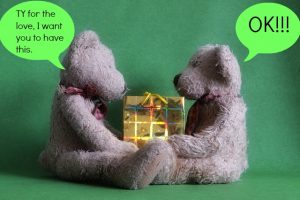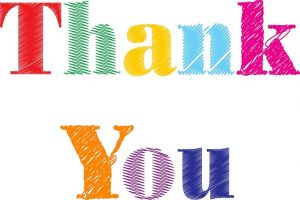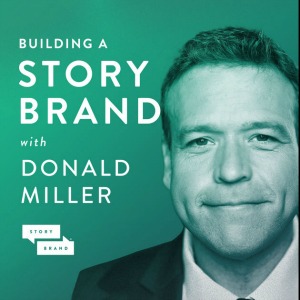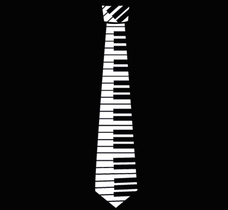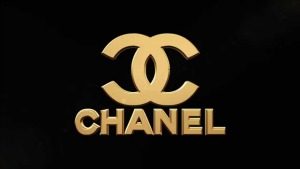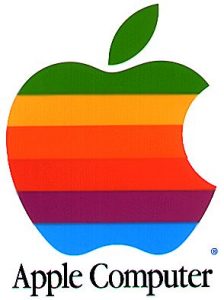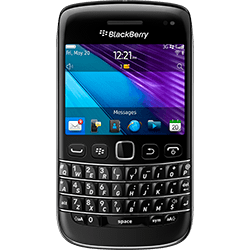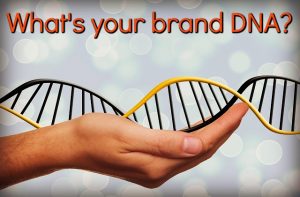 The biggest fundamental flaw of the OLD AND NEW music business is that the creators and/or owners of the creations have no freaking idea who their customers are.
The biggest fundamental flaw of the OLD AND NEW music business is that the creators and/or owners of the creations have no freaking idea who their customers are.
(Pssst, you’re the creator).
Yes, they have demographics, but they don’t have their contact information so they don’t REALLY know who they are exactly. It also means they can only reach out via mass media like TV and Terrestrial Radio.
Which costs millions.
But nobody is listening to the radio and certainly, nobody is watching music videos on TV anymore. Not like they used to.
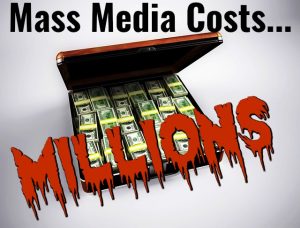
Therefore, record sales suck.
Therefore, few new superstars are being created.
Half the artists who were in the top 10 grossing tours of 2016 were over 55-years-old because the market is largely unaware of the new talent. This is because nobody is listening to radio and watching videos on TV.
It’s also because the new artists aren’t trying to connect with their fans. They want to be rockstars like their heroes.
The world would be VASTLY different for indies, signed artists, and labels if they would stop “doing what they’ve always done†and expecting different results.

Ahem, that’s the very definition of crazy.
Let me tell you a crazy story.
QUESTION: For decades and decades the richest people in Texas were in what industry exactly?
If you guessed the oil business, you’d be correct! The richest oil families in Texas are multi-billionaires and have been for quite some time.
 Back in the early to mid 90’s a now famous Texan decided to build a widget. He spent the money to hire the team to design the widget. He spent more money prototyping that widget to work out the kinks and get it functioning properly. He spent more money leasing the manufacturing space, hiring the manufacturing experts, purchasing the manufacturing equipment, and the necessary components to put that widget into mass production. Then he spent a literal fortune promoting that creation to ensure he was systematically penetrating the minds of consumers.
Back in the early to mid 90’s a now famous Texan decided to build a widget. He spent the money to hire the team to design the widget. He spent more money prototyping that widget to work out the kinks and get it functioning properly. He spent more money leasing the manufacturing space, hiring the manufacturing experts, purchasing the manufacturing equipment, and the necessary components to put that widget into mass production. Then he spent a literal fortune promoting that creation to ensure he was systematically penetrating the minds of consumers.
He created the product then he created the demand for the product.
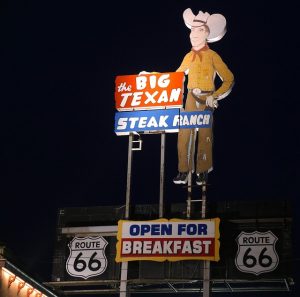
But this future-shaping, trend-setting Texan did one super important thing different.
You see, for centuries all the widget makers, that is to say all the creators, sold their creations through distribution. Typically, a creator would sell their product for half price to the distributor. Then, the distributor marks up the price to the full market value so they can make their profit. But these distributors don’t actually create anything. That was how it always worked if you wanted to sell anything. Clothing makers sold 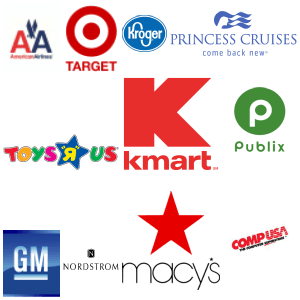 through huge distributors like Macy’s and Nordstrom’s. Toys were sold through distributors like K-Mart, Target, and Toys-R-Us. Automakers sold through local privately-owned dealerships. Electronic parts makers sold their parts to original equipment manufacturers via huge multi-hundred-million-dollar publicly traded distribution companies. Airline and Cruise companies needed local travel agents to distribute their services. Farms and food companies sold their products to brick and mortar local grocery distribution companies like Kroger.
through huge distributors like Macy’s and Nordstrom’s. Toys were sold through distributors like K-Mart, Target, and Toys-R-Us. Automakers sold through local privately-owned dealerships. Electronic parts makers sold their parts to original equipment manufacturers via huge multi-hundred-million-dollar publicly traded distribution companies. Airline and Cruise companies needed local travel agents to distribute their services. Farms and food companies sold their products to brick and mortar local grocery distribution companies like Kroger.
But our famous Texan was asking the right questions.
Why was it worth selling your product to a distributor for half the market value anymore?
What exactly did a distributor bring to the table that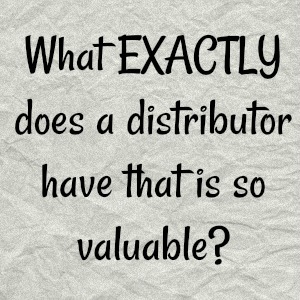 made it worth letting them stick their hands that far down the creator’s pocket?
made it worth letting them stick their hands that far down the creator’s pocket?
Answer: A relationship with the customer. For some it was a relationship with millions of customers which made for some very powerful and profitable distributors.
They knew the end-users!
Back in the day, if your creation wasn’t in distribution you didn’t sell anything, period. So, it was mission critical. It was the way our fathers did it, and their fathers did it, and their fathers and so on.
That’s a super tough nut to crack, you know. All that history.
But our Texan didn’t want to sell his $1,000 widget to a distributor for $500. He felt that if he was the one smart enough to create the widget and courageous enough to take the risk of designing, prototyping, manufacturing, and marketing the product he should get 100% of the money for it!
Seems fair.
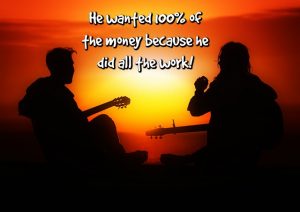 Plus, distributors show exactly zero brand love. Macy’s is just as happy to sell a customer Wrangler jeans over Levi’s. They don’t care what you buy, they just want you to buy!
Plus, distributors show exactly zero brand love. Macy’s is just as happy to sell a customer Wrangler jeans over Levi’s. They don’t care what you buy, they just want you to buy!
But there was another way.
A way to bypass the distributor now because we had this new thing called the internet. (I feel like you should say that line in Dr. Evil’s voice using your fingers as air quotes; In-ter-net).
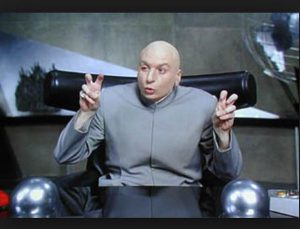
The internet would allow a creator who formerly had to pay big money to advertise via mass media (like darts in the dark if you ask me considering today’s alternatives) to connect and create a relationship with their customer.
Think about that.
That creator could have complete control over their customer’s experience.
That creator could become profitable faster because they’d have to sell half as many products to make the same amount of money that they would collect via distribution.
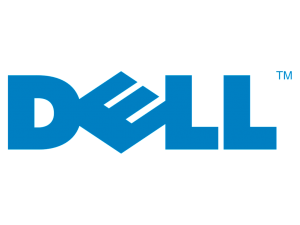
You’ve probably figured out that our mystery genius is Michael Dell of Austin, TX. He became the first computer manufacturer to utilize the internet as a tool to create a direct relationship with the end-user/customer that he worked so hard and paid so much to reach.
His plan worked because within 7 years, Dell became the richest man in Texas.
That was in the late 90’s and early 2,000’s.
As of last year, according to Forbes Magazine, Michael Dell is worth 19.1 billion dollars. The nearest oil family is worth a paltry 8.9 billion. Poor babies.
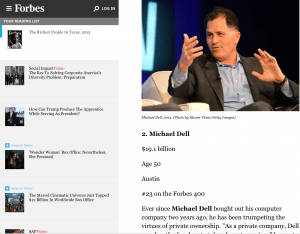
That tells me the plan REALLY worked.
But the story doesn’t end there because Dell changed the world.
For decades if you were an electronic component manufacturer and your components were in an Apple product, you HAD to go through distribution because they had a relationship with your end-user that you couldn’t have. So, you sold your $1 diode for .50 cents and made money in the massive amounts of volume.
But after Dell Computer, you built a website and the engineers at Apple could contact you directly about questions, feedback, new products, ideas, etc. Little by little over the following 15 years the parts companies refused to renegotiate their distribution contracts because they didn’t need them anymore. They now possessed the one thing they used to pay the distributor for; a relationship with Apple (aka their end user). As a result, those multi-hundred-million-dollar-publicly-traded distribution companies imploded over time.

All gone.
All the local travel agencies vanished seemingly overnight.
Now consumers could access cruise lines and airline companies directly to purchase tickets without paying a commission because they didn’t need the travel agent anymore.
Did you notice how quickly the brand name outlet malls popped up around America? Companies like Levis, Coach, Hilfiger, Reebok, etc. couldn’t sell direct on their own but they damn sure could if they clustered with the other brand names and gave consumers a beehive of multiple brand names which sold their products discounted prices from the distributors.
 Companies that didn’t adapt like K-Mart and Sears fell into crippling debt.
Companies that didn’t adapt like K-Mart and Sears fell into crippling debt.
How about the auto industry? GM purchased back tons of once privately owned dealerships because the consumers were only coming on the car lot to test drive the vehicle they wanted to purchase. The consumers didn’t need the salesmen for knowledge. Shockingly, consumers were literally more educated on the product than the salesman when it came to options on the vehicles. Why? Because the end user could research the product directly on the manufacturer’s website.
Wow.
Mind Blown.
It all happened because one really smart guy was able to adapt in a changing environment.
One clever person was asking the right questions even though he didn’t have all the answers yet.

QUESTION: What does Spotify, Pandora, and iTunes have that the labels, signed artists, and indie artists don’t have?
ANSWER: A relationship with their customers.
Which is a relationship with the label’s customers.
Also a relationship with your customers.
The labels aren’t adapting because distribution is always how they’ve done it. Just like all those other computer companies back in the late 90’s.
Make sense, right?
Which means these distributors have tons of information on these customers that would help artists and labels make more money.
But they won’t share that information with labels and artists.

Why won’t they share that information with you, the signed artists, and the labels?
Because the second they do, they would become irrelevant, just like travel agents.
Wow.
I wonder how the world will change after artists, labels, managers, and publishers open their eyes like Michael Dell and take total control of our precious creations?
Stay
In
Tune.
If you liked this article, please LIKE and SHARE it right now.
